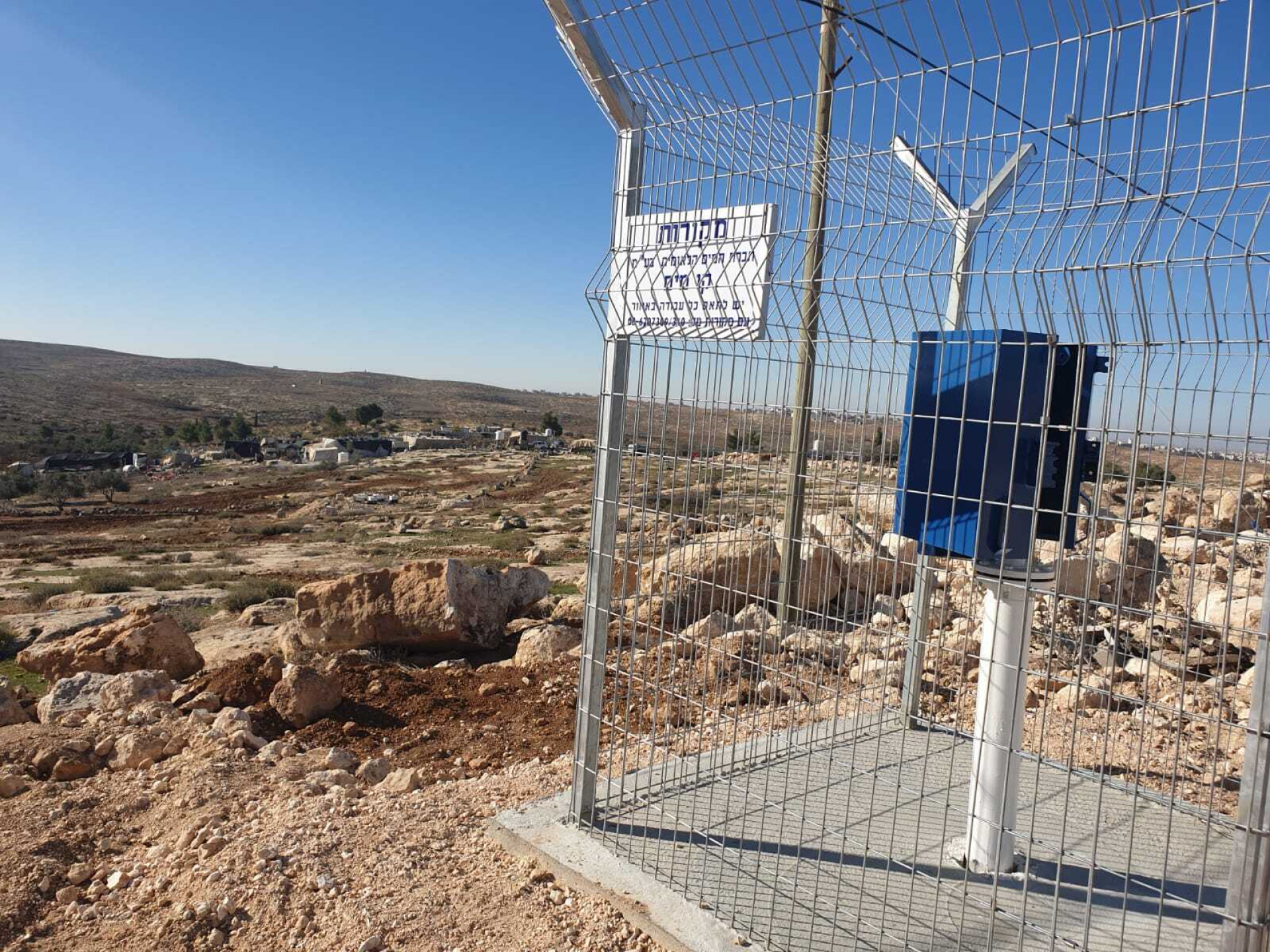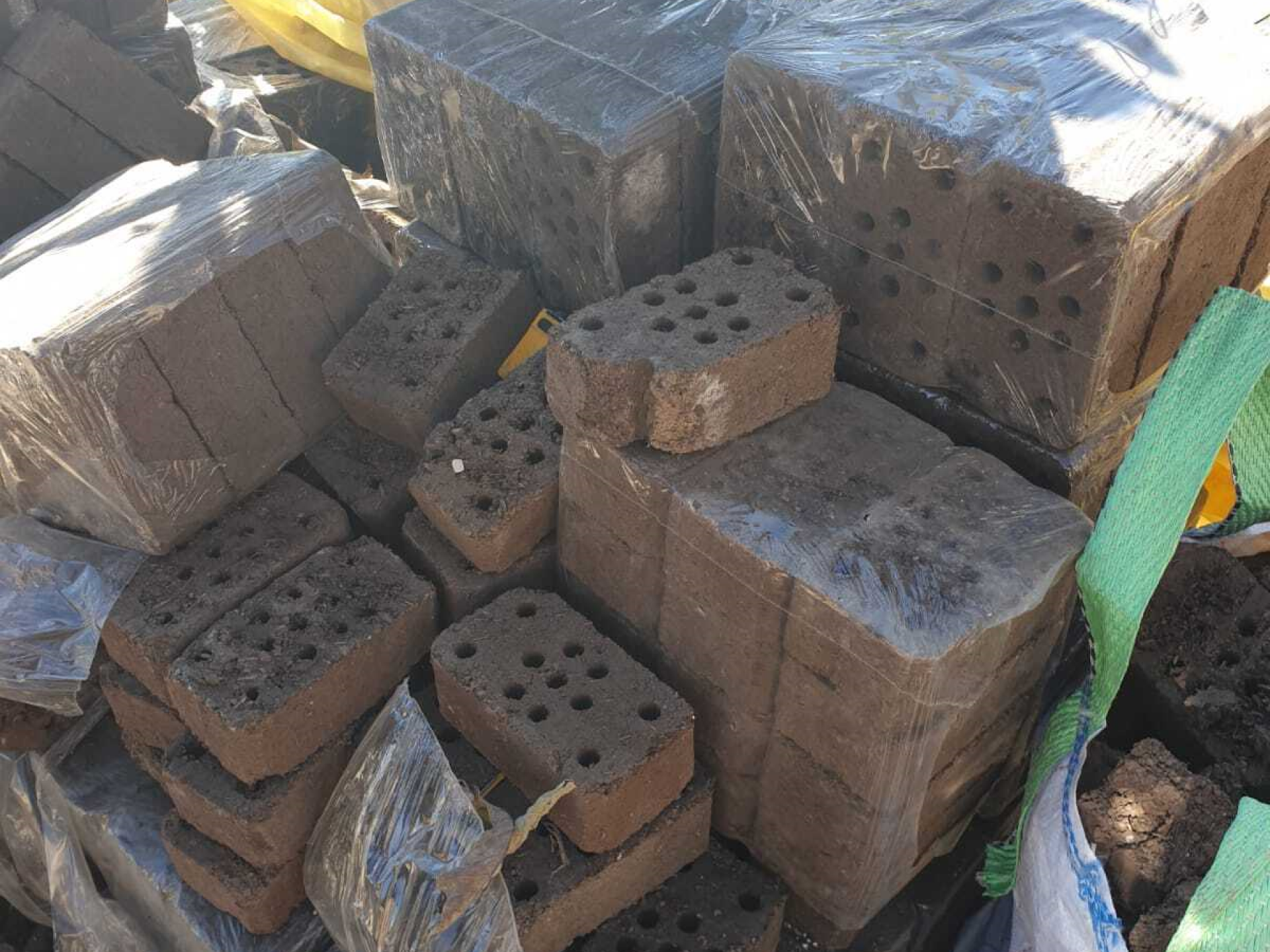Sansana (Meitar Crossing), South Hebron Hills, Susiya
Meitar checkpoint – the parking lot is full. Cars are also parked on the hills on each side. The booths are again operating. The life force is stronger than anything. Buses in the parking lot for the visit of families of the prisoners.
Susiya
Mekorot company are dealing with pipes and taps. The pictures show how vital parts are placed in cages. The plumbing passes near the village of Susiya directly to the Israeli Susiya settlement without supplying water to the Palestinians.
In a meeting with Nasser, he recounts how the Israeli settlements of Mitzpe Yair and Abigail are provided with water. He hows us a picture of the document attesting to negotiations with attorneys on the subject. They are willing to pay. The residents are transparent to the authorities who prefer that they leave. Nasser recounts the history of the 4 generations of the Nawaj'a family. First there were near Mount Amasa.
Education: There is no budget for a kindergarten. There is a primary school, though. High school students attending in A-Tuwani.
About 32 families have about 500 people scattered there in buildings and tents.
Nasser recounts that in 1982, Pnina Albek who was then the State Attorney, stated that the lands ara state lands because they were not cultivated, and an Israeli settlement was built there. They would have had a chance to go to court but only learned about this too late. And today when they try to plough and work their lands they sometimes manage do so with the assistance of charitable organizations from overseas. Sometimes the state destroys. They say that since the judges of the High Court were changed things are worse. There are 105 demolition orders against them. They do not know when this will happen. There is a desire on the part of the state to move them to Yatta. What helps them is when foreigners come to be with them and write reports.


